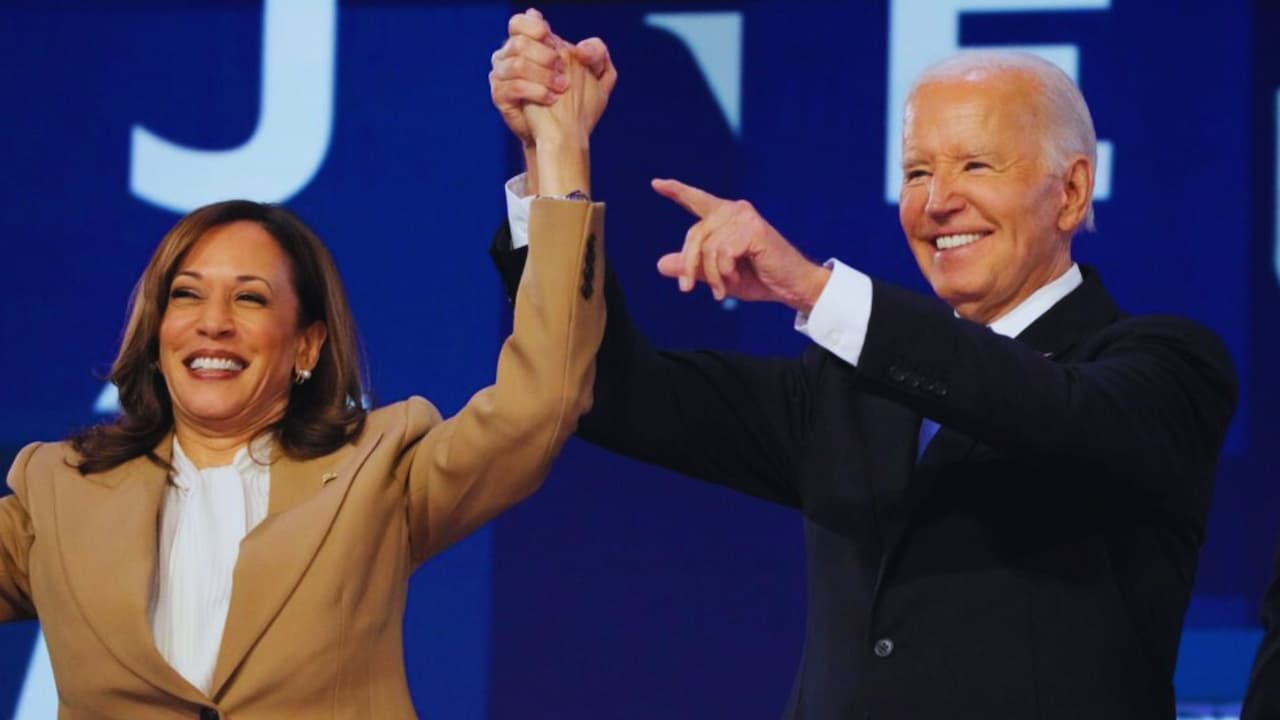The Ripple Effect: How Biden’s Delayed Exit Shaped Harris’s Historic Defeat
In a stunning turn of events that has reshaped the American political landscape, Vice President Kamala Harris’s decisive loss to Donald Trump in the 2024 presidential election has sparked intense debate about the timing of President Biden’s withdrawal from the race.
As a veteran political reporter watching this unfold from Washington, I’ve witnessed how this electoral upset has sent shockwaves through the Democratic establishment.
President Joe Biden’s delayed decision to step aside has become the center of mounting criticism from within his own party. The 81-year-old president, who withdrew from the race in July 2024, now faces scrutiny from allies who believe his timing may have cost Democrats the White House.
Andrew Yang, a former presidential candidate, stated unequivocally: “President Biden bears the primary responsibility for this defeat.” Yang’s stark assessment highlights a growing consensus among Democratic insiders that an earlier withdrawal—perhaps in January rather than July—might have yielded a different outcome.
The Harris campaign faced substantial challenges.
- The timeline was condensed, leaving minimal space for forging a unique identity.
- Voters continue to express concerns about inflation and border security.
- Arab Americans and young voters express dissatisfaction with Middle East policy.
- She is struggling to set her potential administration apart from Biden’s
In a telling moment during her September appearance on “The View,” Harris couldn’t point to a single decision where she would have broken from Biden’s approach. This response became a repeated talking point in Trump’s campaign messaging.
Biden’s legacy presents a complex picture. His administration successfully:
- Led the country through the worst pandemic in 100 years
- Built international support for Ukraine
- The government has passed a landmark $1 trillion infrastructure bill.
Yet, according to Thom Reilly from Arizona State University, “Maybe in 20 or 30 years, history will remember Biden for these achievements. However, in the short term, I’m uncertain if Biden can escape the legacy of being the president who defeated Donald Trump, only to usher in another Trump administration four years later.
The warning signs were clear long before Biden’s withdrawal. An AP-NORC Center poll from August 2023 revealed that 77% of Americans believed Biden was too old for another term. Despite these indicators, Democratic leadership, with few exceptions, avoided addressing the age issue head-on.
Matt Bennett, executive vice president at Third Way, captures the gravity of the moment: “Harris was dealt a really bad hand. Some of this was Biden’s fault, while others may not have been. Would Democrats fare better if Biden had stepped back earlier? We won’t know for sure, but we’ll keep asking ourselves.”
Looking ahead, the political landscape has shifted dramatically. Republicans now hold control of both the White House and Senate, while the House remains uncertain. Trump, despite facing legal challenges including two impeachments and a felony conviction, has pledged to fundamentally reshape federal government operations and reverse many Biden-era policies.
In a gesture of democratic tradition, Biden has invited Trump for a White House meeting, which the president-elect has accepted. The transition process begins as Democrats grapple with significant questions about party leadership, timing, and strategic decision-making that will shape their approach to future elections.
For years to come, Washington will likely debate the lasting impact of Biden’s delayed exit. It serves as a stark reminder that in presidential politics, timing isn’t just important—it can be everything.
